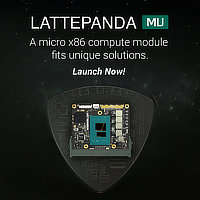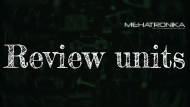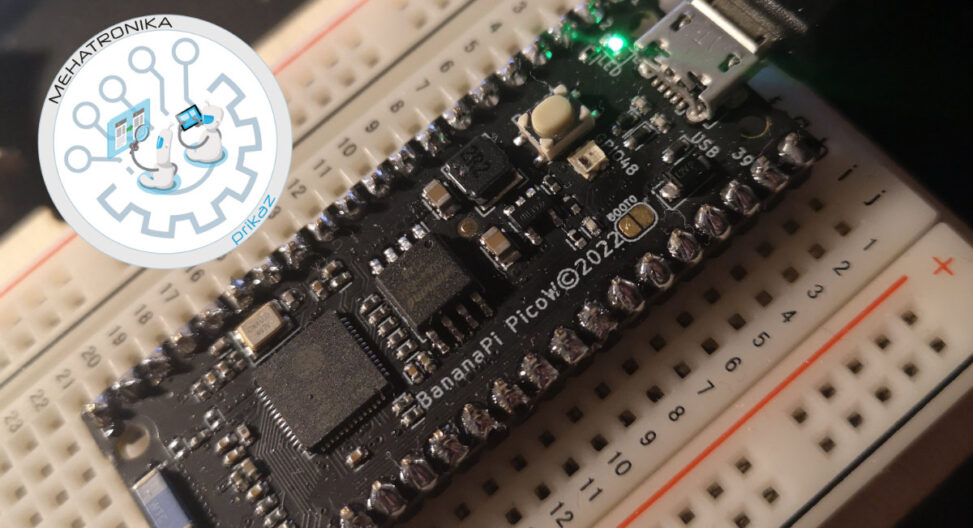Sinovoip, the company behind the Banana Pi series of development kits and SBCs had an interesting product idea: to create a Raspberry Pi Pico pin-compatible development kit based on the 240 MHz Tensilica LX7 ESP32-S3R2 dual-core SoC and name it BPi-PicoW-S3. Instead of a dual-core RP2040 with 264 KB of SRAM, we have the LX7 based chipset with 512kB of SRAM, 2MB of on-chip PSRAM and 2.4 GHz support, alongside Bluetooth 5LE (no fancy Pio state machine stuff, however).
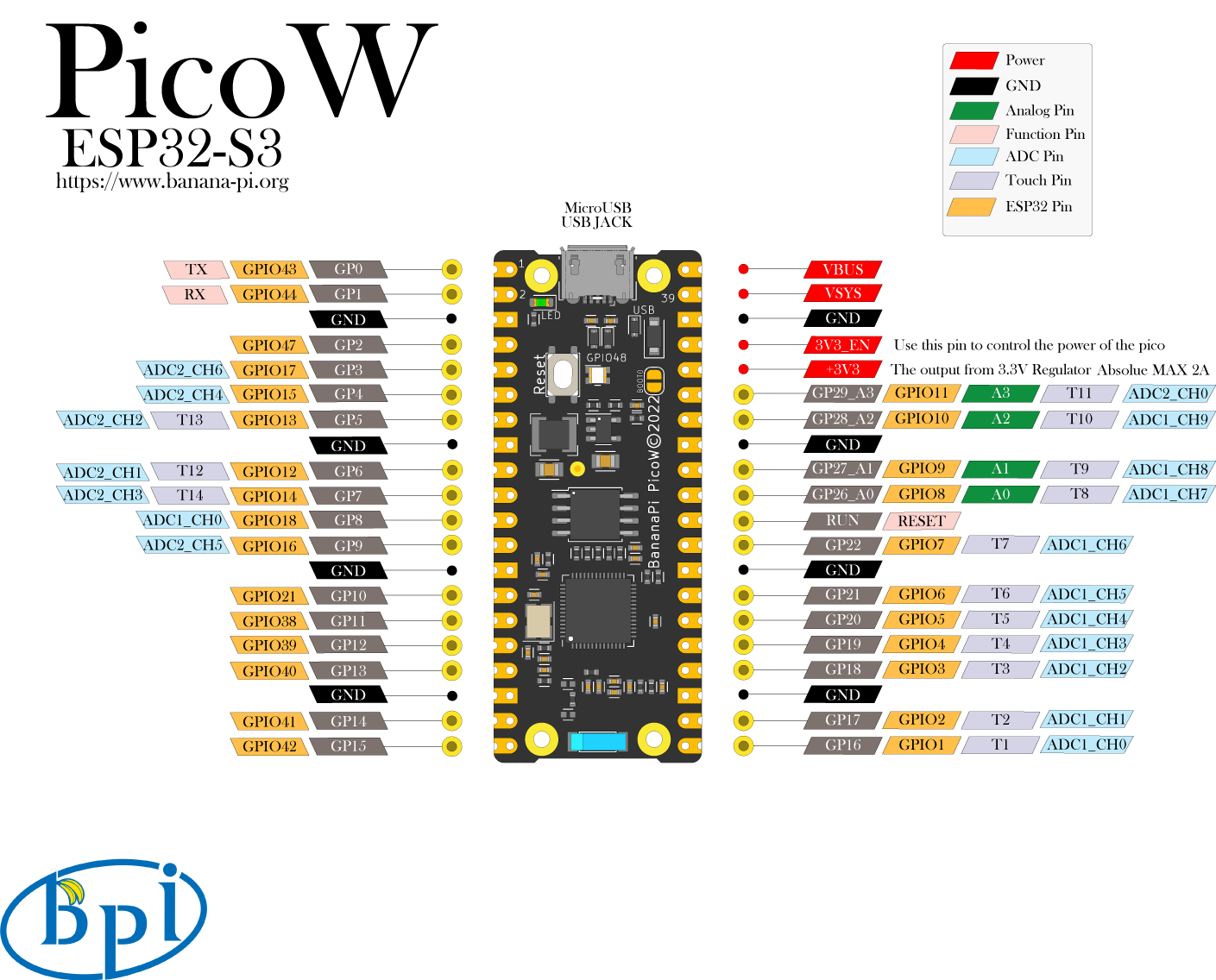
We have the speed, processing power, pin-to-pin compatibility, the same dimensions, and ultimately the same target audience. Even though the ESP32-S3 features 45 GPIO pins, the form factor has to sacrifice quite a few of them, breaking out only 24. A Neopixel LED has been added on-board.
Unlike the RP2040, which can be programmed using CircuitPython, MicroPython and C (Processing), the BPi supports CircuitPython, C and Espressif’s own IDE.
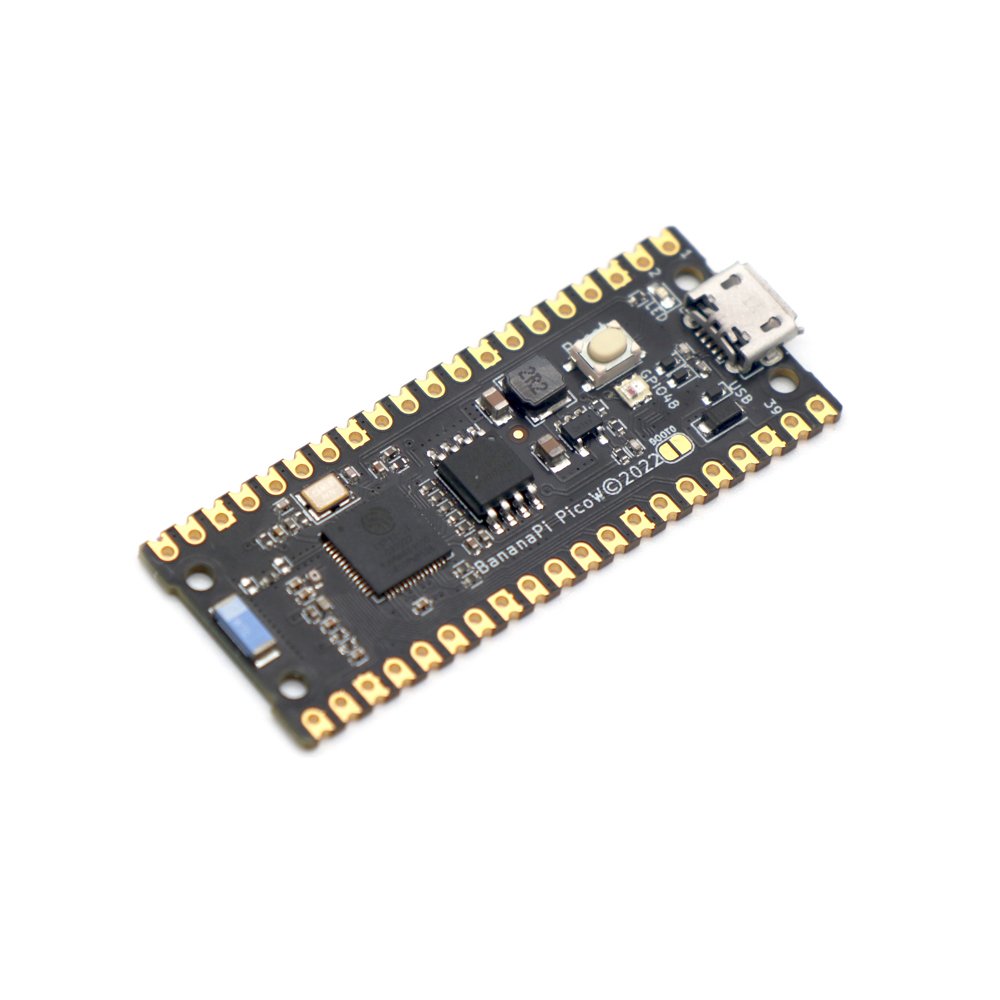 | 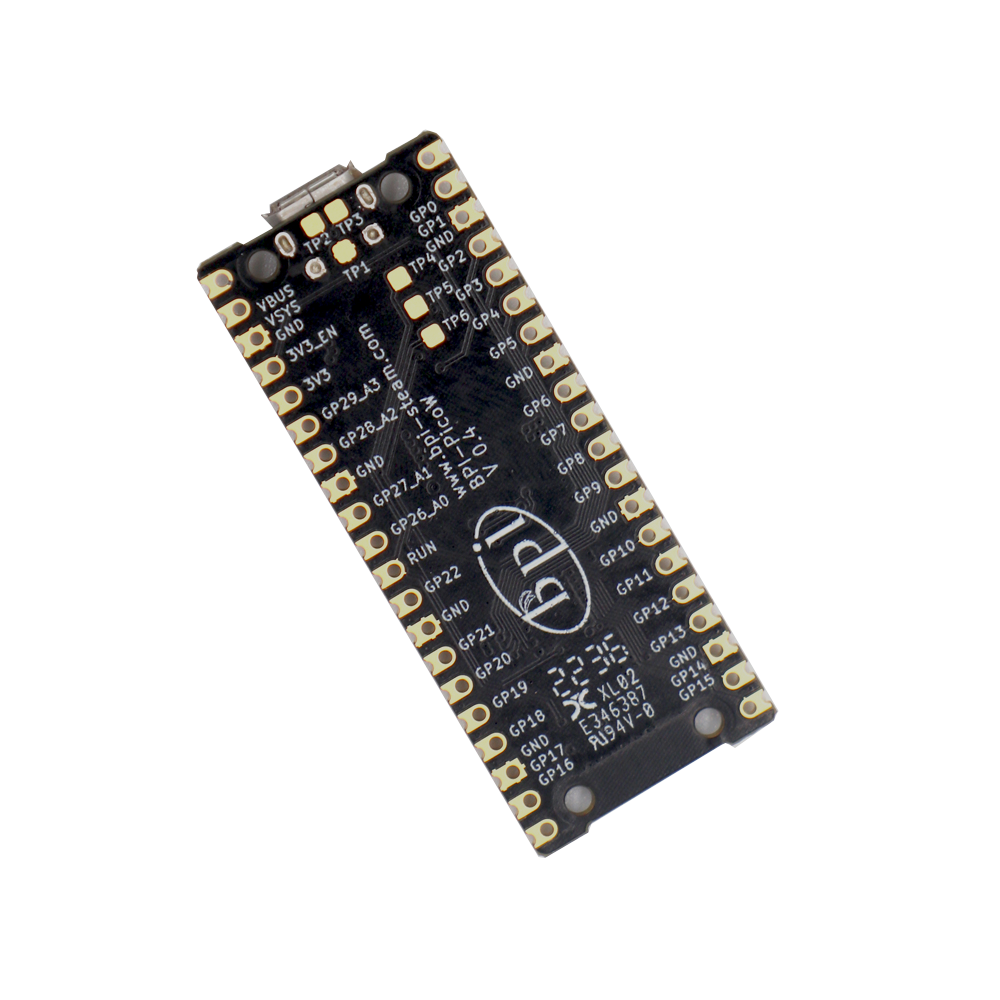 |
CircuitPython is pre-loaded on the board is geared towards STEM projects. All Adafruit ESP32-S3 Feather examples worked perfectly – with potential small changes of GPIO pin numbers. Standard WiFi connection examples also worked perfectly first try – so its safe to say that the board is fully compliant.
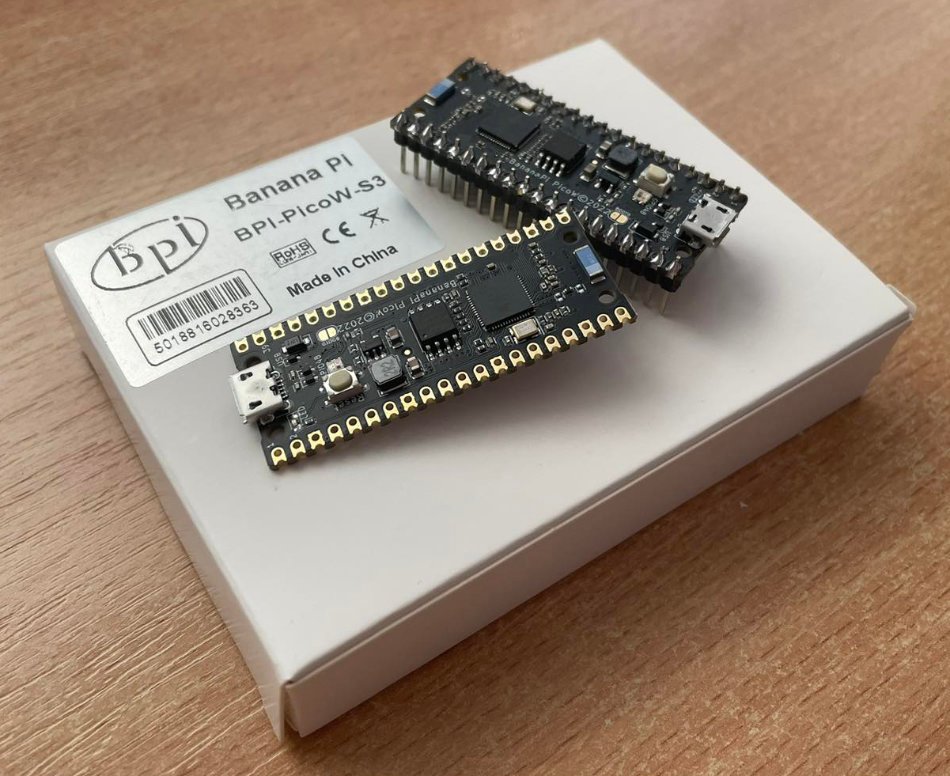
Arduino IDE support is also good – with generic ESP32-S3 libraries handling everything – as there are no custom libraries for the PicoW available yet. The most complicated, but most fully-featured option is the Espressif IDF package – which offers low-level access to the system at hand.
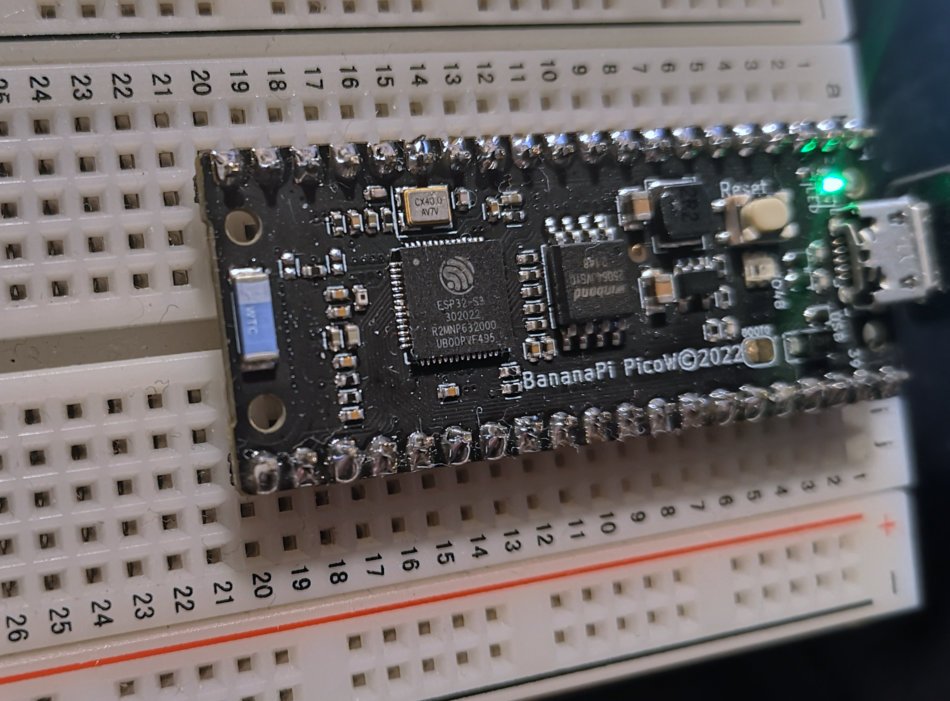
This tiny board, which we received together with the Banana Pi Leaf S3 from the manufacturer left a good impression. It’s smaller than the Leaf and somewhat less capable, but form-factor compatibility with the Raspberry Pi Pico W justifies this choice. Compared to the original Raspberry Pi board, the Banana Pi features Bluetooth (although, reportedly, Bluetooth support on the Pico W is to be enabled in the near-future via a software update), some AI capability and data encryption features thanks to its more powerful SoC. There’s no fancy state machines – which are a curious feature of the RP2040 MCU. For IoT projects and learning CircuitPython, this miniature development system deserves a recommendation.
- NVIDIA Announces Project GR00T - 03/21/2024
- Staying in Sync: NVIDIA Combines Digital Twins With Real-Time AI for Industrial Automation - 03/21/2024
- Radxa Rock 5A review - 03/05/2024

